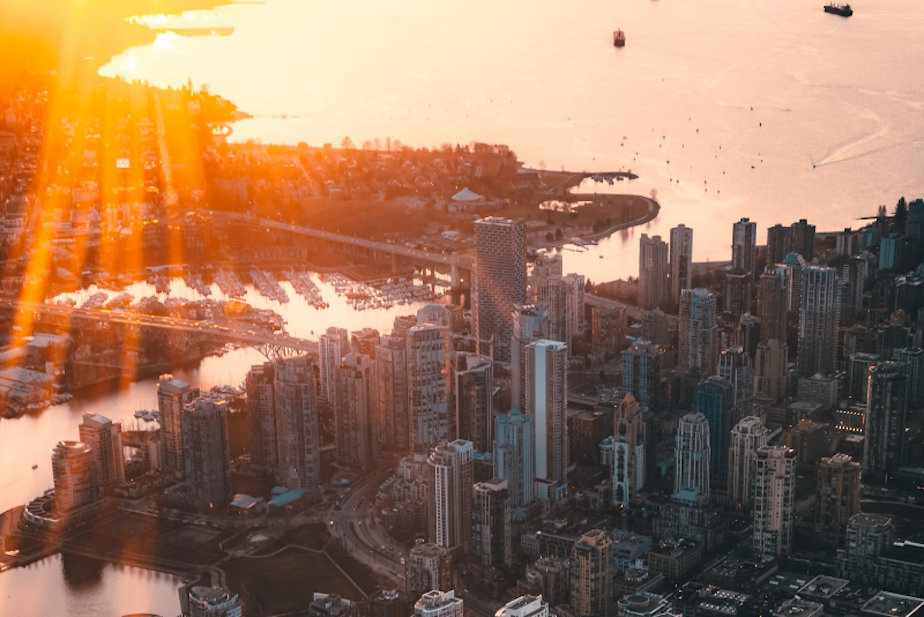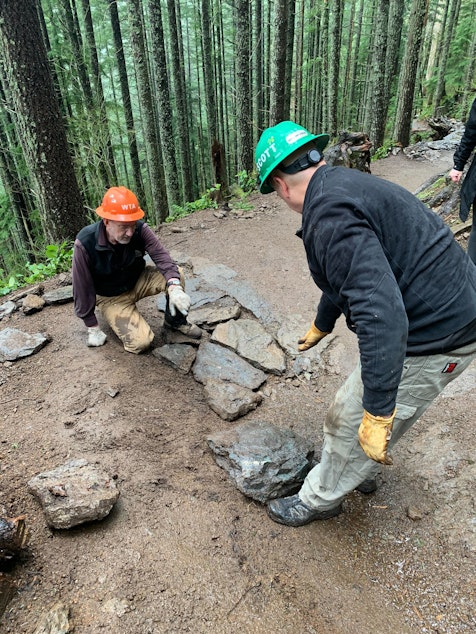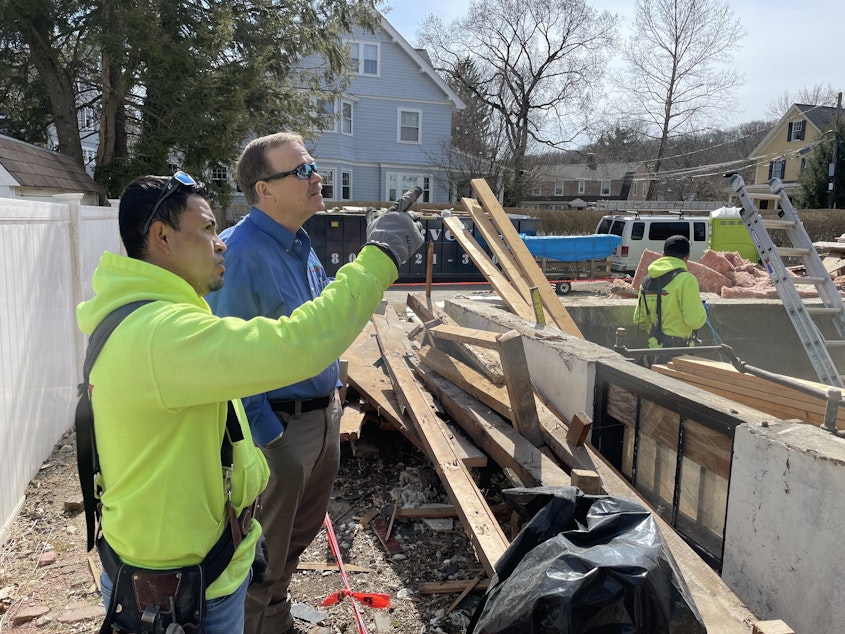Welcome to Washington ... starring Vancouver, BC: Today So Far

- Why Washington is often never in films about Washington, and how that could change.
- Did you start a garden over the past couple years? And do you plan to keep it up?
This post originally appeared in KUOW's Today So Far newsletter for March 29, 2022.
The film The Art of Racing in the Rain is set in Seattle ... but filmed in Vancouver, BC. The show iZombie uses Vancouver as a stand-in for Seattle. The Twilight films that made Forks, Wash. famous basically avoided Washington altogether and opted to film in Oregon and BC instead. Sure, films will use a few cheap establishing shots, but the fact is, Washington is often not in films about Washington.
I won't get into the nuts and bolts of film incentives — check out this Soundside episode for more on that. But the reason for all this basically breaks down to this. When a filmmaker has ever come to Washington, our lawmakers have said "Good luck with that." But that same filmmaker goes down to Oregon, and they are treated to dinner and offered some chunky tax breaks. When that filmmaker goes to Vancouver (aka "Hollywood North"), BC rolls out the red carpet, shows them a never-ending list of incentives, and offers up their first-born child (metaphorically speaking). The result has been Vancouver and Portland's economies getting a considerable boost with jobs and outside money coming in. For example, the TV show Supernatural is one of many, many productions that have been based in BC. In 2016, it's single operation spent $48 million into the BC economy, the majority of which went to labor, and the rest went to local goods and services.
But this scenario could be changing, however. Washington's lawmakers recently expanded the state's tax incentives for filmmakers. So there is hope that Washington could soon serve as the setting of Washington. Read/hear more here.
Let's talk about gardening. A few years back, I wrote about how Bremerton's Manette neighborhood had a decent gardening scene and neighbors often traded their produce. That article was called "You can grow your own way," riffing on a Fleetwood Mac song that has since frequently gotten stuck in a colleague's head, but with my headline as the chorus.
I bring that up for a couple reasons. One, I'm hoping my old colleague will read this and get Fleetwood Mac stuck in his head again (snap!). And two, the gardening scene has received a slight boost lately. As KUOW's Ruby de Luna reports, a recent consumer study indicates that a lot of people who did not garden before 2020, took it up and now intend to keep it up (this trend is particularly notable among younger folks born after 1985). It's not a big bump in gardening interest, but it's noticeable. Some of this was driven by mental health reasons, and some of it was over concerns about food shortages.
Sponsored
Which is what made me think of that Bremerton neighborhood and the United States' history of "Victory Gardens." During tough times (like world wars) Americans planted gardens for morale and food security. That was certainly the case during pandemic shutdowns. I recall that those neighbors in Manette were quite happy with their bounty (vegetables from this house, honey from that house). So I'm hoping that this gardening bump will be more like a seed that will grow in the months and years ahead, and maybe even more neighborhoods can offer some friendly food. Read more here.
AS SEEN ON KUOW

Two volunteers lay stones on the Rattlesnake Ledge trail to even the grade over a drainage channel. The trail has received a major makeover to accommodate its massive popularity. (Clare McGrane / KUOW)
Sponsored
DID YOU KNOW?
Most of western Washington is rated as USDA Zone 7b-8b. What the heck does that mean for gardeners? According to Swansons Nursery in Seattle, it breaks down to how cold it gets around here and how well your plant can hold up to the temperature. The idea is that the lower the zone number, the lower the average temperature. So you shouldn't plant anything rated lower than your area. If you want to place a plant rated higher than 8 around here, it's not a good idea — they're adapted to warmer regions. You'll have better luck with lower-rated plants.
ALSO ON OUR MINDS

By one estimate, the U.S. is more than 3 million homes short of the demand from would-be homebuyers. Pandemic-related supply chain problems aren't helping. They're adding tens of thousands of dollars in cost to the typical house. But the roots of the problem go back much further — to the housing bubble collapse in 2008.

